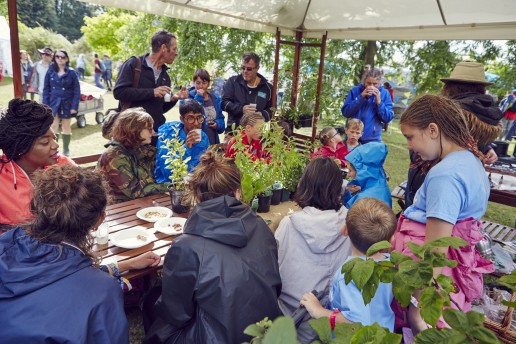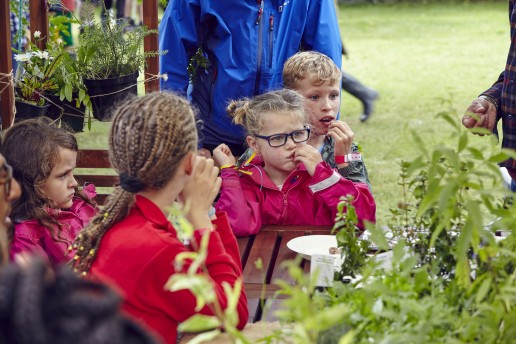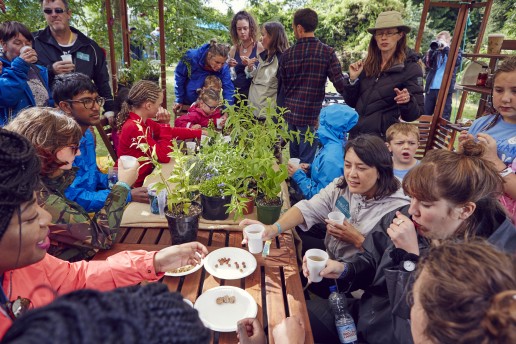Woodland Wonders and Forest Fancies at the Royal Cornwall Show
Imagine a woodland glade carpeted with strawberries, clover and nasturtiums. Above is a canopy of apple, walnut, apricot and mulberry trees with grape, kiwifruit and passionflower vines winding their way around trunks and branches. The undergrowth is a patchwork of blueberry, hazelnut, sorrel, mint and comfrey, with horseradish, liquorice and garlic poking out from the rich earth. This picture of an edible paradise, is in fact, a forest garden and the inspiration behind Einstein’s Garden’s tastiest project so far, Edible Forest.Forest gardens are based on ancient tropical food growing systems and are made up of seven special layers: the tall-tree layer, the low-tree layer, the shrub layer, the herb layer, the ground-cover layer, the vine layer and the root layer. Rather than the annual hard graft of sowing seeds in a traditional veg patch, forest gardens consist of low maintenance perennials that create a harmonious ecosystem, working with nature. The community of different plants provide nutrients for each other as well as habitats for wildlife and essential pollinators.
Most excitingly, the vast majority of forest garden plants are scrumptious, succulent and full of flavour. Forest gardens can teach us to see food and plants in a whole new way, broadening our diets and transforming what we may have previously considered to be a patch of weeds into a handy pantry of ingredients! Many forest garden varieties will never have come close to a supermarket shelf. Have you ever tasted medlar, chokeberry or Japanese wineberry? What about day lilly, fuschia berries or salt bush? How about a salad of sorrel, lime leaves and dandelion? Or tea infusions of yarrow, lemon balm and rose petals?

We’ll be bringing our larder of woodland delights to the Royal Cornwall Show on 8th, 9th and 10th June. Take a seat at the dining table and join the forest feast!Edible Forest is an interactive tasting experience inspired by forest gardens developed in collaboration with forest garden researcher from the University of Exeter, Emma Pilgrim, and forager and wild food teacher, Martin Bailey. Discover the full story on our Projects page:


